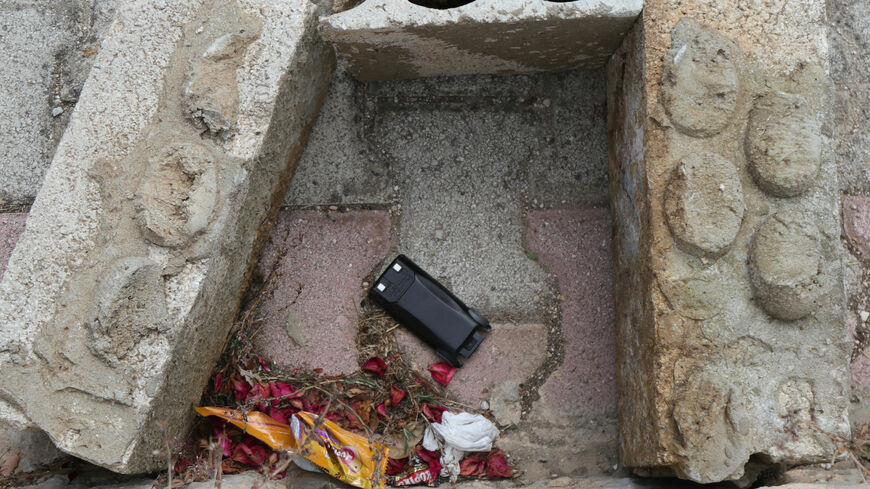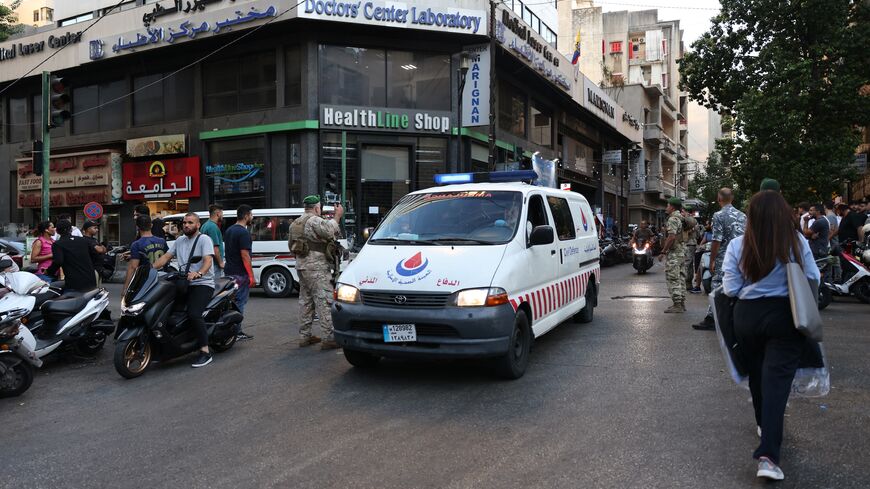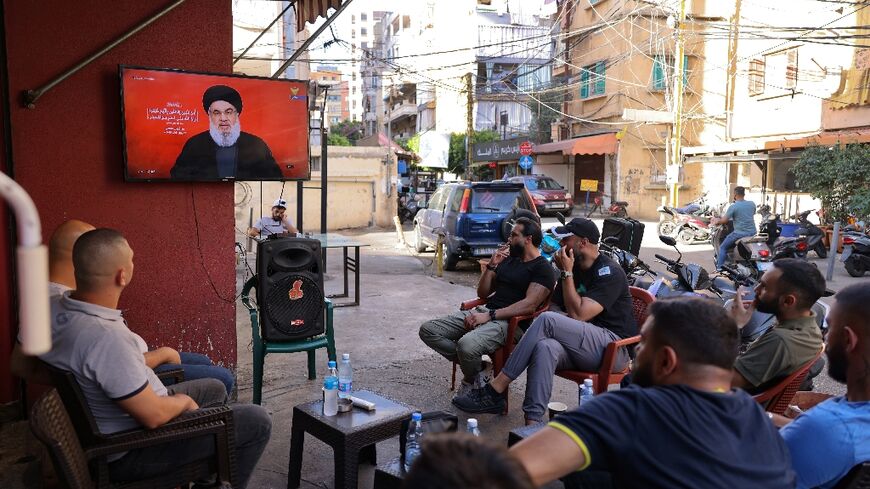Is there anything Biden can do in the Middle East?
Israel had to "use or lose" Hezbollah beeper bombs; UAE emphasizes ‘realignment’ ahead of Washington visit.

For the past year, almost every one of these columns has focused on the possibilities, and ultimate inefficacy, of US diplomacy and pressure to enact a ceasefire in Gaza and tamp down escalation between Israel and Hezbollah.
Aaron David Miller put it in context this week in a comment to the Washington Post: frequent flyer US diplomats, despite genuine earnestness, may have become part of the "political furniture" in the region. Too many meetings, too many trips, too few results, not enough back up, maybe, from the White House.
US diplomats are world class, they’re serving their country above and beyond the call — but something’s missing.
At risk of understatement, this is getting serious, perhaps a sign or symptom of waning US influence, with implications beyond the Middle East. The verdict will come later as to whether the lack of results was because of an especially gnarly regional conflict, a flawed strategy and approach, or something more lasting. The regional pieces will be picked up by the next US president. Absent the unforeseen, the Biden chapter is over, even if the Gaza war is not, and another war with Hezbollah may be in the making.
Scoop: Israel 'forced' to use or lose beeper bombs against Hezbollah
Al-Monitor had the scoop earlier this week on Israeli intelligence indicating that two Hezbollah members had suspicions concerning the pager plot that pushed Israel to expedite the plan.
“High-level regional intelligence sources told Al-Monitor that the decision to carry out the operation was ‘forced’ on Israel,” Gabrielle Debinski and Tyler Huffman write, “following intelligence it gathered that two members of the Iran-backed group caught wind that the pagers had been compromised.”
“The intelligence sources described an intense debate within the Israeli security apparatus before the last-minute decision to execute the attack, which occurred on Tuesday at around 3:30 p.m. Beirut time. The sources revealed that thousands of pagers Hezbollah acquired for its members were booby-trapped by Israel before they were delivered recently to the organization.”
The New York Times later reported that Israel itself had manufactured the devices using shell companies in a years-long plan.
From Israel: Netanyahu banks on Hezbollah vulnerability
As cross-border strikes intensify between Israel and Hezbollah, and in the wake of two days of attacks involving the booby-trapped devices belonging to the Lebanon-based group’s members, Ben Caspit reports that Israeli leaders still believe the extent and intensity of the fire can be controlled.
“According to associates of Prime Minister Benjamin Netanyahu, he hopes these moves will also increase the pressure on [Hezbollah leader Hassan] Nasrallah to the point of avoiding a ground invasion of southern Lebanon to push Hezbollah fighters back and stop the targeting of northern Israel with missiles and exploding drones,” Caspit writes.
The attacks involving exploding pagers and walkie-talkies, which killed at least 37 — including two children — “has pushed [Hezbollah] to its most vulnerable point since Oct. 7, according to Israel's assessment,” Caspit adds.
“Although Nasrallah insisted Hezbollah would continue attacking Israel as long as Israel continues fighting Hamas in Gaza, Israeli leaders believe he regrets the decision to stand by Hamas after the Palestinian group attacked Israel on Oct. 7.”
From Washington: US urges de-escalation in Biden’s final stretch
Elizabeth Hagedorn reports that the Biden administration has little room to maneuver as it seeks to prevent another war from erupting in the Middle East.
“The pagers exploded a day after US envoy Amos Hochstein arrived in Israel to press for calm along the Israel-Lebanon border. For nearly a year, Hochstein has shuttled between Beirut and Jerusalem in search of a diplomatic deal that would end the rocket and missile fire that has displaced tens of thousands from border communities on either side,” Hagedorn writes.
“Hochstein is seen as a capable negotiator, having brokered a major agreement on the maritime boundary between Lebanon and Israel in 2022. But he faces long odds in defusing the current crisis, with the Iran-backed militants in no mood to pull their forces back beyond the Litani River following this week's attacks. The lame-duck Biden administration also has little to offer Netanyahu, who faces growing domestic pressure to deal with the cross-border Hezbollah threat.”
On Thursday, the Wall Street Journal reported that administration officials now privately concede they don't expect a Gaza cease-fire deal to be reached by the end of Biden's term.
From Dubai: UAE in ‘realignment mode’ as MBZ heads to Washington
Al-Monitor’s Gulf Correspondent Jennifer Gnana reports from a briefing in Abu Dhabi with Anwar Gargash, the UAE's senior presidential diplomatic advisor, that “the US-UAE relationship has come ‘full circle’ and is in ‘realignment mode’ as the focus is on economy and technology.”
Gargash’s comments come ahead of a White House meeting next week between UAE President Sheikh Mohamed bin Zayed and US President Joe Biden. The trip will be the UAE leader’s first to Washington since he became president in 2022.
"We're in a less geostrategic and a more geoeconomic phase," Gargash noted.
Yet while the visit will include economic partnership, “other issues such as peace, security and stability in the Middle East, and the ongoing conflict in Gaza, will also be on the table for discussion,” Gnana reports.
The visit comes as the UAE has voiced growing frustration with the ongoing war in Gaza.
“UAE's foreign minister, Sheikh Abdullah bin Zayed, vocalized frustrations on Saturday when he said his country would not support the ‘day after’ in Gaza without the establishment of a Palestinian state,” Gnana writes.
“While Gaza will remain on the agenda, Gargash said the UAE was looking at a 10- to 20-year plan for the evolution of its relationship with the United States,” she added.










